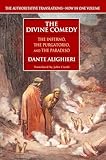“As we humans delve ever deeper in our quest to reveal the ultimate nature of reality, there is a stain in the picture that emerges,” writes critic and philosopher William Egginton in his new book, The Rigor of Angels. “That stain is what we might call the paradox of the moment of change: the instantaneous sliver of time when something, some particle, must be both perfectly identical to itself in space and time, so as to be the thing that changes, and somehow different, so as to have changed at all.” Tracing this paradox back to Achilles and the Tortoise, The Rigor of Angels finds solutions and unresolved questions in the disparate work of Borges, Heisenberg, and Kant. All three investigated points of discontinuity—those places of paradox where our greatest tools to understand reality fail us. Beyond the marquee, Egginton summons a wide supporting cast—Boethius, Ibn Rushd, Einstein, García Márquez, Sam Harris—for our triad to learn from and contradict. The result is a breezy and readable book; both a nice introduction to the orthodoxy of paradox for the casual reader and an informative (and funny) primer on various seemingly austere historical figures.
Egginton is a writer who aims to flatter his readership. You enjoy the pleasing sensation of discovering your own nascent genius, when, in fact, what is on show is his skill as a teacher. He manages to condense vast works and complex theories into snappy discussions, creating a queer sensation in the reader of effortlessly understanding a series of quite challenging ideas. Egginton reduces Zeno’s paradox, of Achilles closing the distance to the Tortoise by halves until infinity, to the dreamy notion of “making a cookie last forever by only ever eating half of what remains.” He explains quantum mechanics in a sentence: “Heisenberg’s principle shows that the closer you home in on the location of a particle, the less you know about its momentum, that is, where it is heading and how fast it’s going there.”
 Even more impressive, he succeeds in getting the reader to lead the way. For example, I found myself ahead of Egginton in linking Borges’s “Garden of Forking Paths” to Schrödinger’s cat experiment and the many worlds theory of quantum entanglement. (“Observations don’t retroactively determine paths and have superluminal effects; cats are not both alive and dead. Rather, observations entail new entanglements that then exclude a host of other possibilities, effectively creating a different world.”) Without Egginton serving things up over-easy, I never would have connected Kant’s Critique of Pure Reason (“There is indeed purposiveness, structure, rigor in our picture of nature, Kant replied, but it is supplied by our own reason”) to Heisenbeg’s critique of classical physics (“We have to remember that what we observe is not nature in itself but nature exposed to our method of questioning”), yet, for a moment while reading, I felt I could have. This careful effect creates a certain protectiveness in the reader for the book. Enthusiasm for a line of argument comes far easier when you can take credit for it yourself.
Even more impressive, he succeeds in getting the reader to lead the way. For example, I found myself ahead of Egginton in linking Borges’s “Garden of Forking Paths” to Schrödinger’s cat experiment and the many worlds theory of quantum entanglement. (“Observations don’t retroactively determine paths and have superluminal effects; cats are not both alive and dead. Rather, observations entail new entanglements that then exclude a host of other possibilities, effectively creating a different world.”) Without Egginton serving things up over-easy, I never would have connected Kant’s Critique of Pure Reason (“There is indeed purposiveness, structure, rigor in our picture of nature, Kant replied, but it is supplied by our own reason”) to Heisenbeg’s critique of classical physics (“We have to remember that what we observe is not nature in itself but nature exposed to our method of questioning”), yet, for a moment while reading, I felt I could have. This careful effect creates a certain protectiveness in the reader for the book. Enthusiasm for a line of argument comes far easier when you can take credit for it yourself.

 What Egginton posits is that paradoxes are inextricable from knowledge. They are not contradictory but rather complementary to classical ways of seeing the world. “There are fundamental flaws in the image we create of the world, those that Kant termed antinomies,” he writes. “Like an imperfection in an otherwise flawless gemstone, it would be a mistake to try to eradicate them. For the flaws are inseparable from knowledge itself.” Borges, in one of his most famous stories, “The Aleph,” literalized this idea: “The Aleph,” Egginton argues, “was probably two or three centimeters in diameter, but universal space was contained inside it, with no diminution in size. Each thing (the glass surface of a mirror, let us say) was infinite things, because I could clearly see it from every point in the cosmos.” Borges had seen that these points of discontinuity had a curious relationship with eternity (as with Zeno’s race or the endless cookie) and Egginton pushes you to compare the aleph to Dante’s image of paradise: “Gazing up and outward, Dante sees the enclosing circles of heaven around him become progressively smaller and more intense in light and joy until, ultimately, his eyes find that one central point, infinitely small and infinitely bright, that, paradoxically, encloses all of existence in its embrace.” (He also notes the aleph’s strange realization in Einstein’s hypersphere “finite in size, but boundless in shape.”)
What Egginton posits is that paradoxes are inextricable from knowledge. They are not contradictory but rather complementary to classical ways of seeing the world. “There are fundamental flaws in the image we create of the world, those that Kant termed antinomies,” he writes. “Like an imperfection in an otherwise flawless gemstone, it would be a mistake to try to eradicate them. For the flaws are inseparable from knowledge itself.” Borges, in one of his most famous stories, “The Aleph,” literalized this idea: “The Aleph,” Egginton argues, “was probably two or three centimeters in diameter, but universal space was contained inside it, with no diminution in size. Each thing (the glass surface of a mirror, let us say) was infinite things, because I could clearly see it from every point in the cosmos.” Borges had seen that these points of discontinuity had a curious relationship with eternity (as with Zeno’s race or the endless cookie) and Egginton pushes you to compare the aleph to Dante’s image of paradise: “Gazing up and outward, Dante sees the enclosing circles of heaven around him become progressively smaller and more intense in light and joy until, ultimately, his eyes find that one central point, infinitely small and infinitely bright, that, paradoxically, encloses all of existence in its embrace.” (He also notes the aleph’s strange realization in Einstein’s hypersphere “finite in size, but boundless in shape.”)
In my unscientific understanding, these paradoxes are intrusions from other dimensions, whether relics of eternity from the quantum beginnings of creation or the quantum entanglements of parallel worlds—I almost picture them as thumbtacks holding up the otherwise perfect 3-D map of classical mechanics. But, even for those more qualified, difficult concepts like this invite questionable visualizations. Egginton tells us that Borges once gifted a girlfriend what he called “an aleph.” But, instead of containing every point in the universe, the object in question held only mirrors and colored glass. He had promised to show her “all the objects in the world,” the inside of the kaleidoscope was a grave disappointment. She did not stick around.
Egginton keeps the book conversational with a well-wrought chain of further jibes: Both funny (“As friends of his would later report, Kant was a man who in the course of a normal discussion ‘threw off ingenious ideas by the thousands’”; “The first essay [Borges] published after accepting the finality of his breakup with Norah dealt with the subject of hell”) and, well, pretty weak (“On this particular day, though, Socrates got schooled”; “In short, Kant finally found an anchor of certainty in a world of change—the unreliability of contractors.”) These overly casual interjections occasionally threaten to veer into irreverence (at one point Egginton attempts to link Kant’s writer’s block to incontinence) but the effect works. How smart could he be if this is what he finds funny? Through self-effacement, he creates a sort of reader-author equality: You learn with Egginton, not from him.
Only in the last section, “The Abyss of Freedom,” does Egginton go to the chalkboard. The argument here about free will, god, beauty, ghosts, and Heisenberg’s culpability is, perhaps, important enough to risk a professorial tone, because here, for the first time, it is his own. Here too, another first, there is no paradox, no acceptance of contradiction, and he is given the ugly task of proving others wrong. You miss the even-handedness. But Egginton, friendly and optimistic til the end, still manages to serve it sunny-side-up.
The post The Orthodoxy of Paradox appeared first on The Millions.
Source : The Orthodoxy of Paradox












